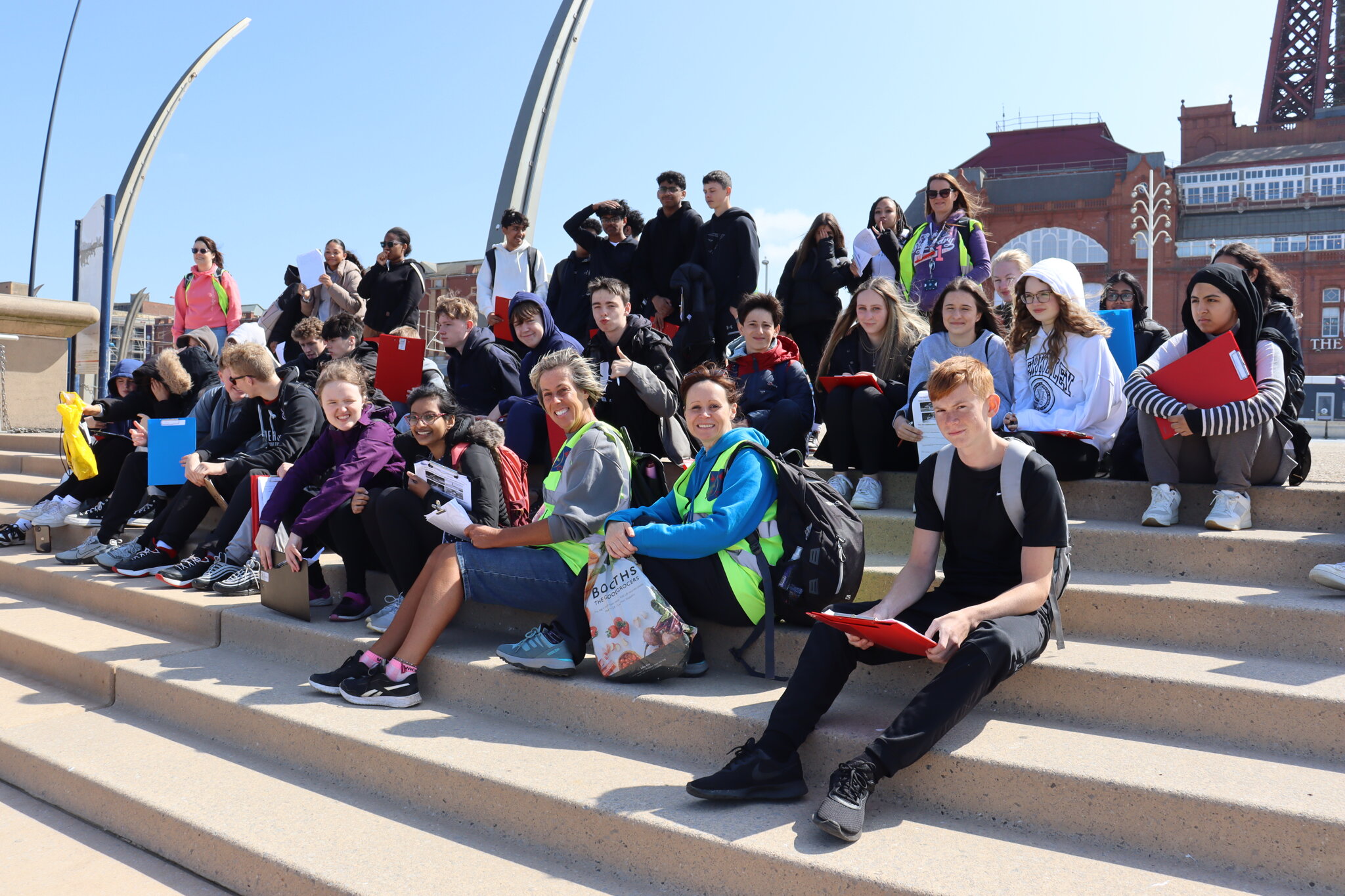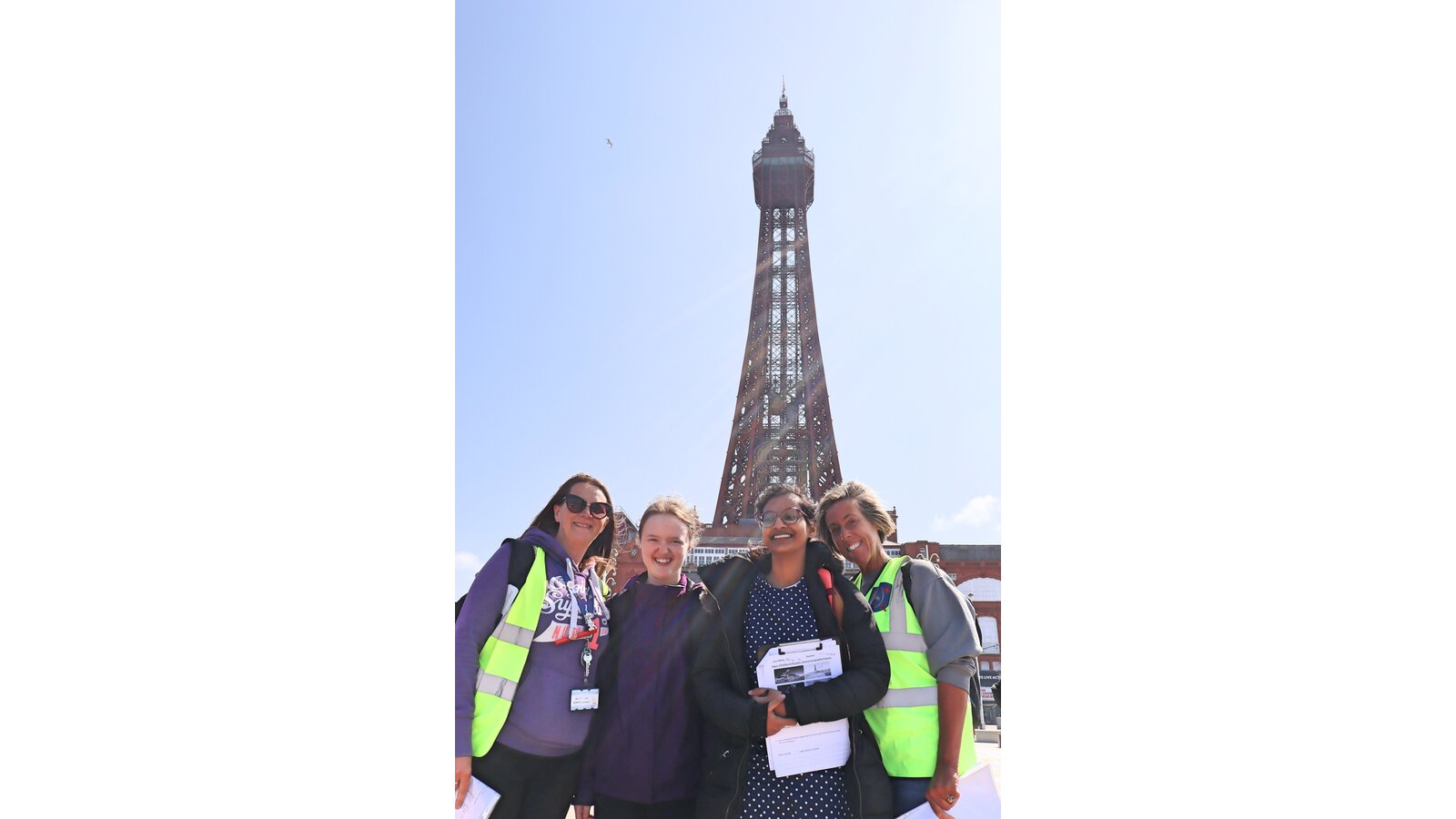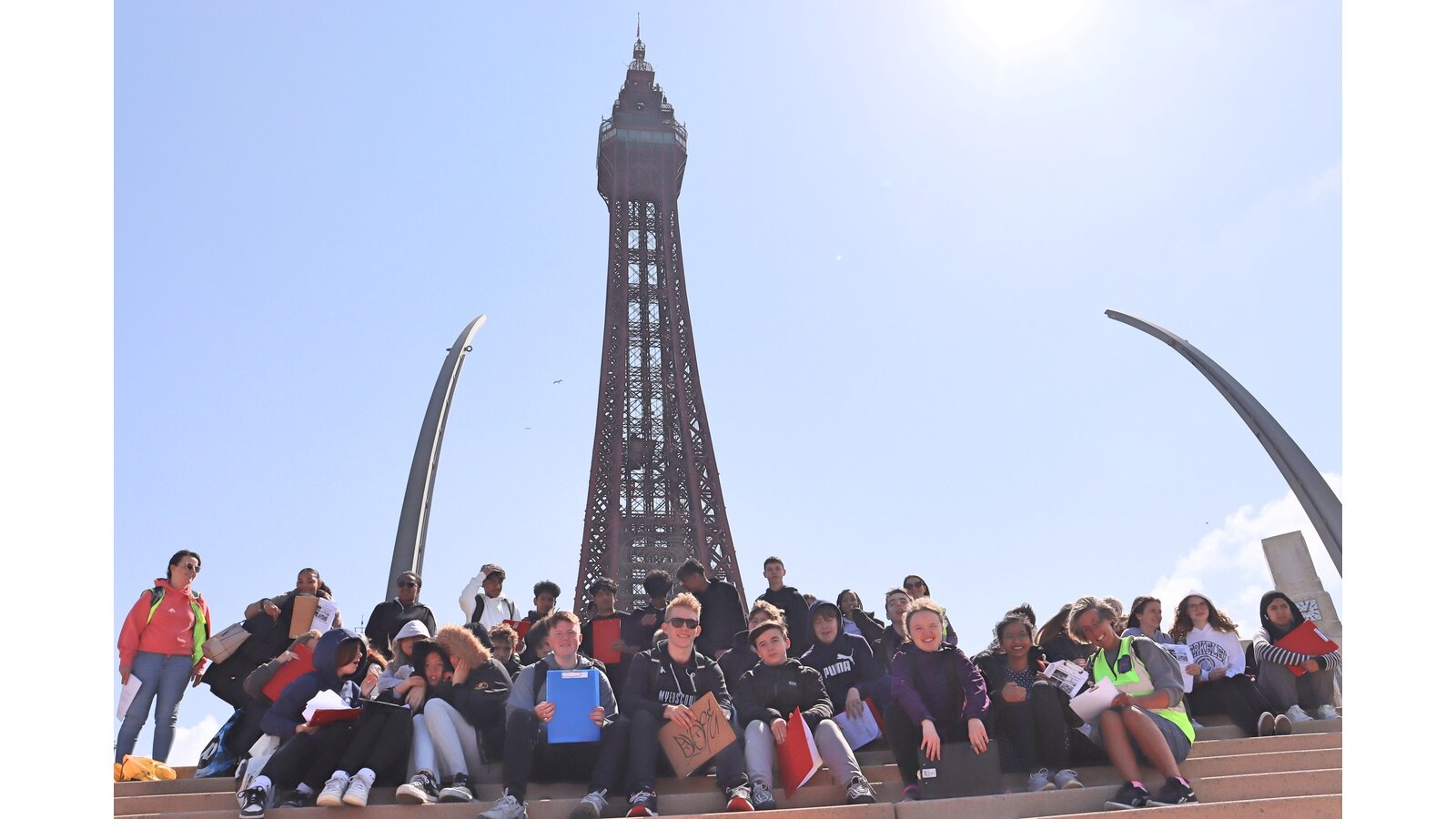
Year 10 pupils and staff enjoyed a fascinating GCSE Geography field trip to the Fylde coast on Thursday 6th June 2024.
The first stop was Lytham salt marsh to observe the plants and landscape of the salt marsh ecosystem for the ‘coastal habitat’ case study. They also looked at the hard engineering case study on the River Ribble.
Next, they looked at the soft engineering at Granny’s Bay and learned about the latest coastal management and the formation of an estuary. It was interesting to learn about how a surgeon had a sand dune cut away in front of his mansion, so it didn’t obscure his sea view, and the implications of that and see how transplanting had helped the dune recover.
Pupils and staff had the opportunity to examine wide sandy beach features, see dune plant species and observe transplanting taking pace at Starr Hills sand dunes. Pupils learned about soft engineering and the impact of tourism.
As the coach drove along Blackpool promenade, pupils observed the new engineering works and trams along promenade, evidence of transport regeneration before being dropped off at the comedy carpet in front of Blackpool Tower and observing the hard engineering of the ‘Spanish steps’.
Pupils then took a walk through the central business district to collect Human Geography data, looking at regeneration. After collecting data in central Blackpool, to aid their GCSE studies, pupils and staff stopped for lunch before heading to Cleveleys to collect Physical Geography data, looking at coastal management. Together, they considered how effective the coastal management strategies employed in the town are and measured groynes, as well as completing a coastal defence survey.
A busy and productive day to support the GCSE Geographers' studies.

